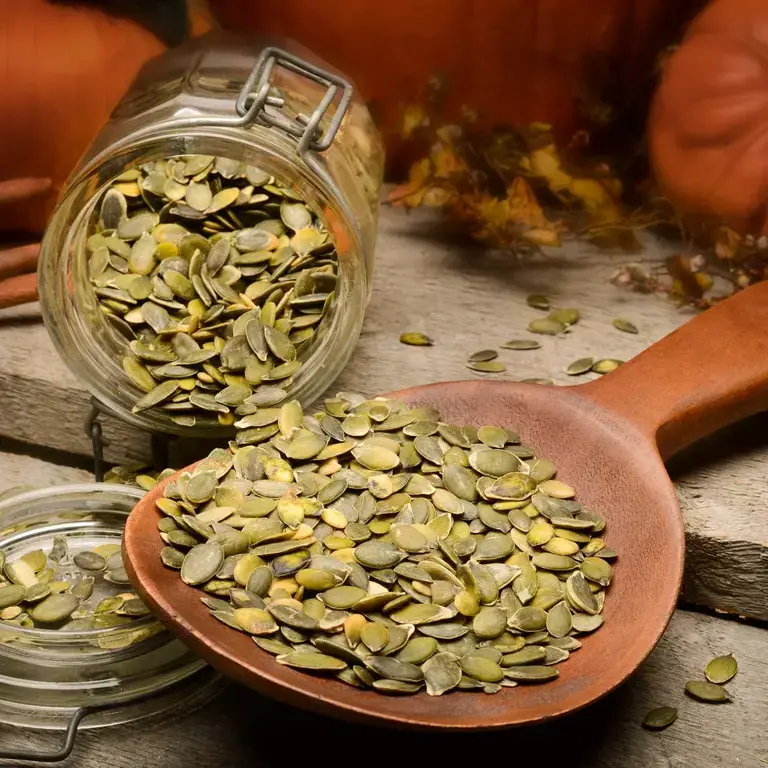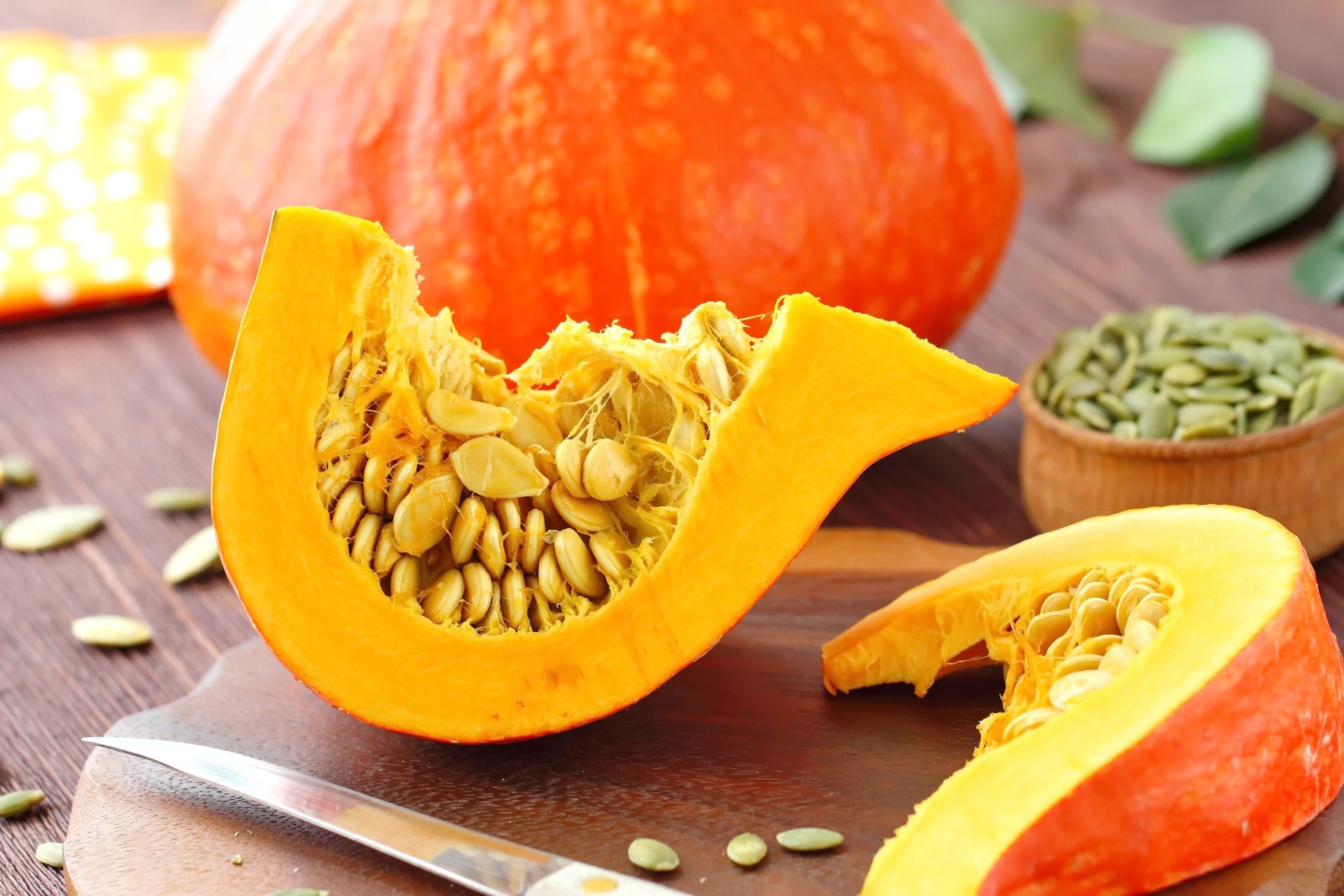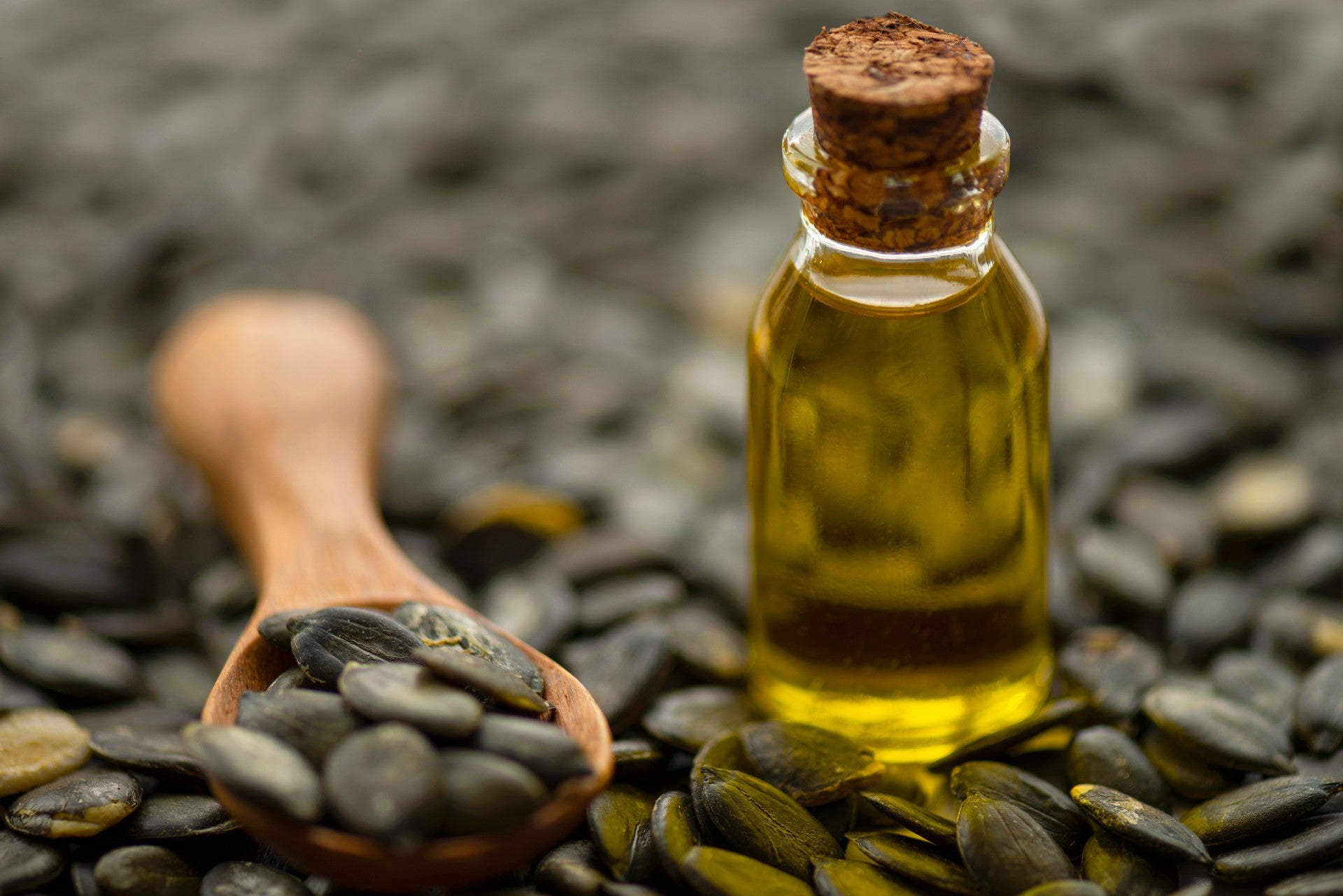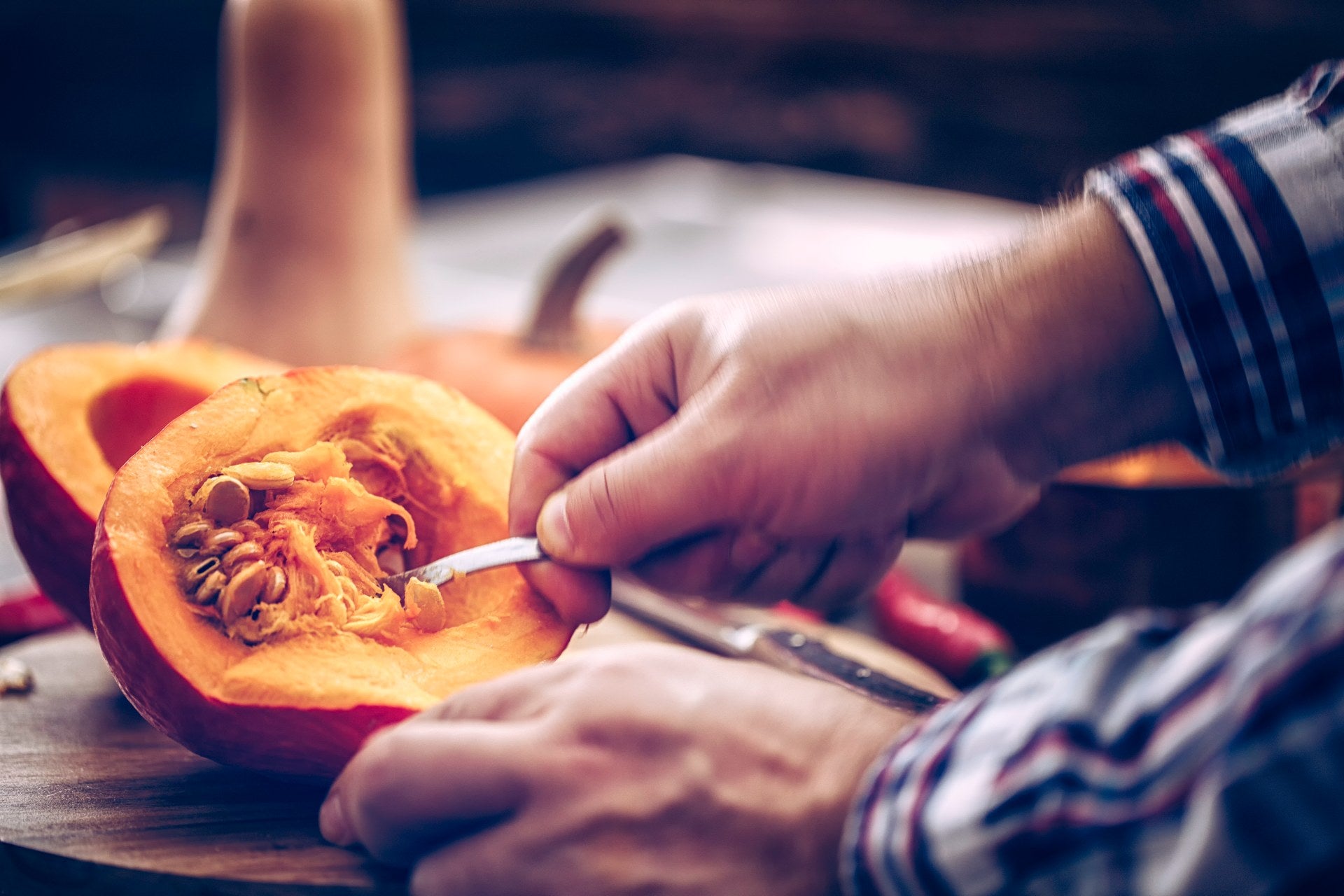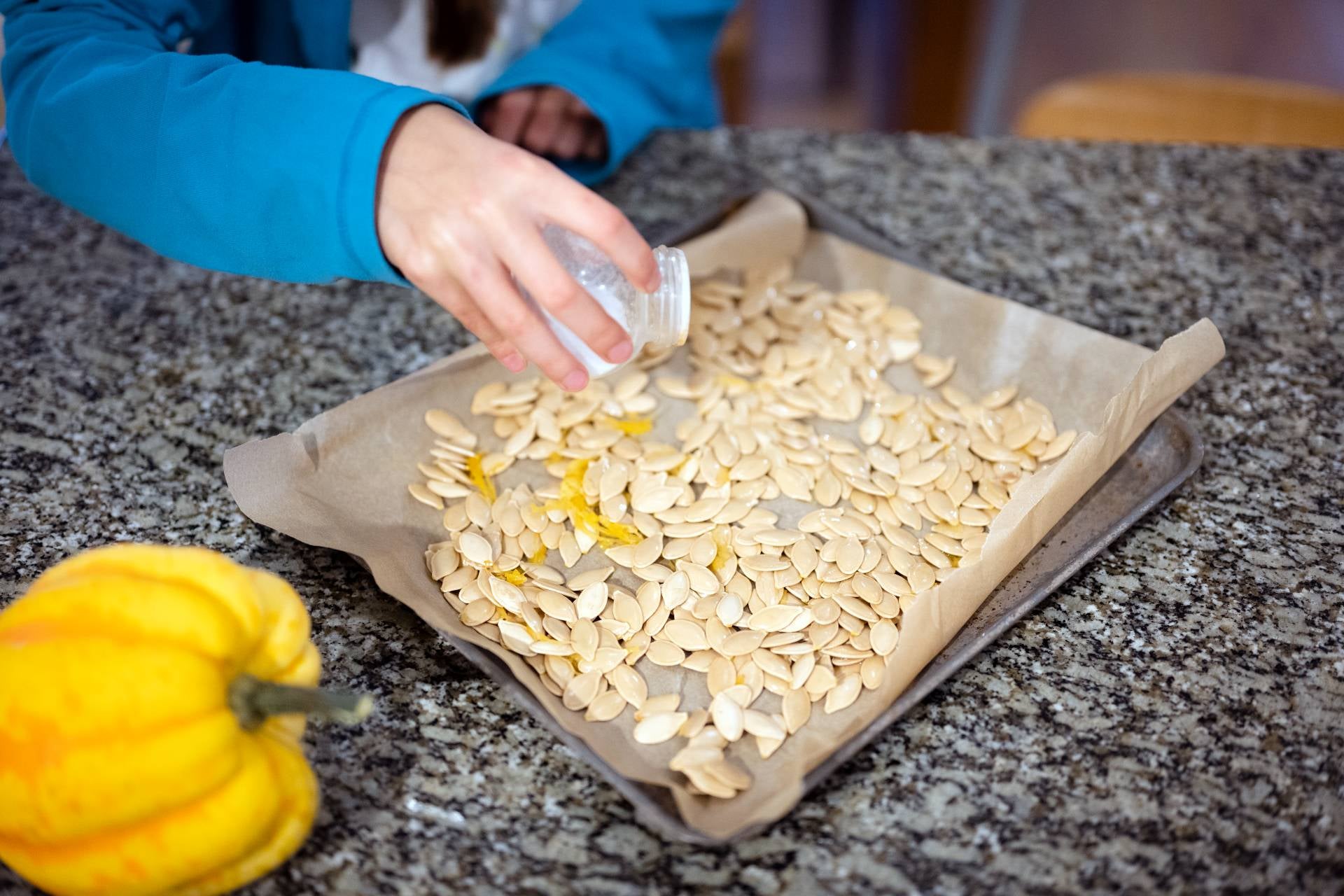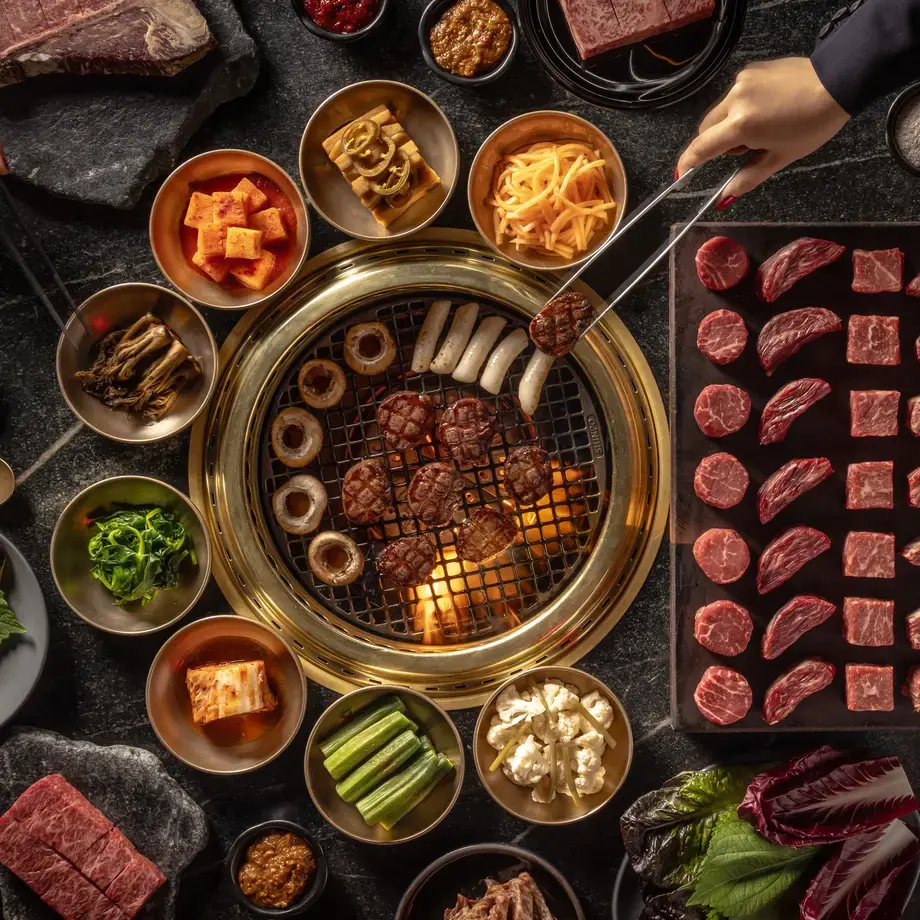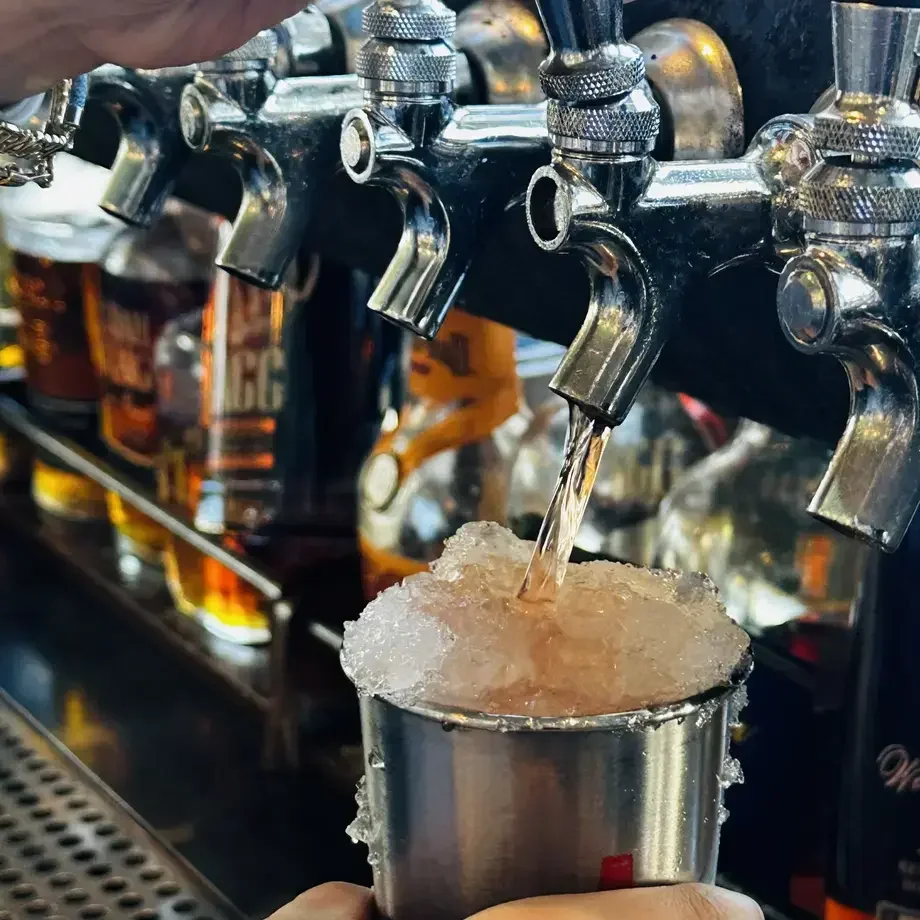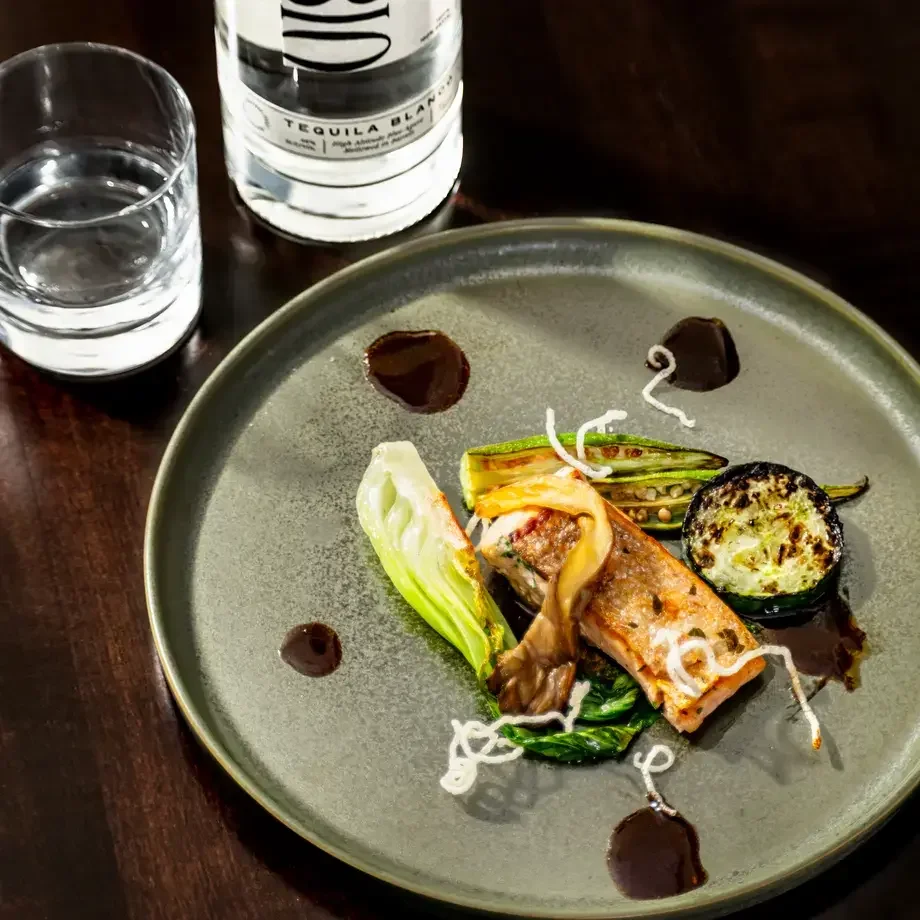Here are a few of the science-backed properties and benefits of pumpkin seeds:
Anti-inflammatory effects
Pumpkin seeds contain antioxidants called phenols and flavonoids, which protect our cells from damage and reduce inflammation in our bodies. Phenols help fend off harmful compounds in the body. Flavonoids have been linked to a broad spectrum of health-promoting actions, such as protection from cancer, artery hardening, and Alzheimer's disease. These antioxidant effects may be even stronger with roasted pumpkin seeds. Research shows that roasted pumpkin seeds are richer in phenols and flavonoids.
Anti-cancer properties
Laboratory studies show pumpkin seeds can inhibit the growth of breast and prostate cancer cells. These effects are attributed to pumpkin seeds’ powerful antioxidant properties, but much more research is needed.
Lower risk of diabetes
Pumpkin seeds are high in magnesium, a mineral most people don't get enough of in their diet. Magnesium content helps regulate blood sugar levels, reducing diabetes risk. Pumpkin seeds also help people with diabetes maintain blood sugar control to help them manage their condition.
Healthy heart function
The magnesium found in pumpkin seeds helps lower and regulate blood pressure. This effect explains why diets high in magnesium are associated with a lower risk of stroke and heart disease. Researchers have found that the antioxidants in pumpkin seeds also keep our blood vessels flexible, improving blood flow and reducing the risk of heart and circulation issues.
High in fibre
Fibre-rich diets promote good digestive health. In addition, high-fibre diets have been linked to lower risks of heart disease, type 2 diabetes and obesity. Pumpkin seeds are a great source of dietary fibre.
Better sleep
Snacking on pumpkin seeds before bed could improve your sleep. Pumpkin seeds contain tryptophan, an amino acid that promotes sleep. The zinc, copper, and selenium in pumpkin seeds can also positively impact the duration and quality of sleep. Finally, studies show that magnesium helps reduce insomnia-causing stress and anxiety.
It's easy to incorporate pumpkin seeds into your diet. You can eat them on their own or add them to Greek yoghurt and fruit. You can sprinkle them into salads, soups or cereals. You can also use pumpkin seeds in sweet or savoury bread and cakes.
How to peel pumpkin seeds
Pumpkin seeds are enclosed in a tough shell or hull. Although the hull is safe to eat, you may prefer to peel it away, especially if it is thick or hard. The process takes time and requires a bit of effort and patience, but the reward is great – soft seeds that can be used in so many recipes or as a healthy snack.
